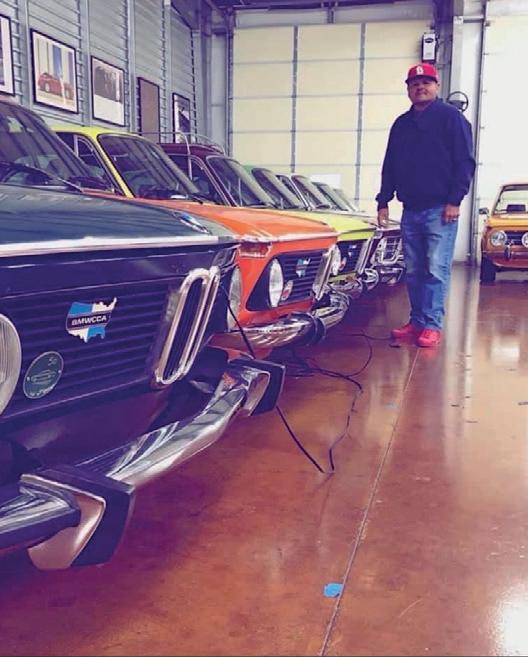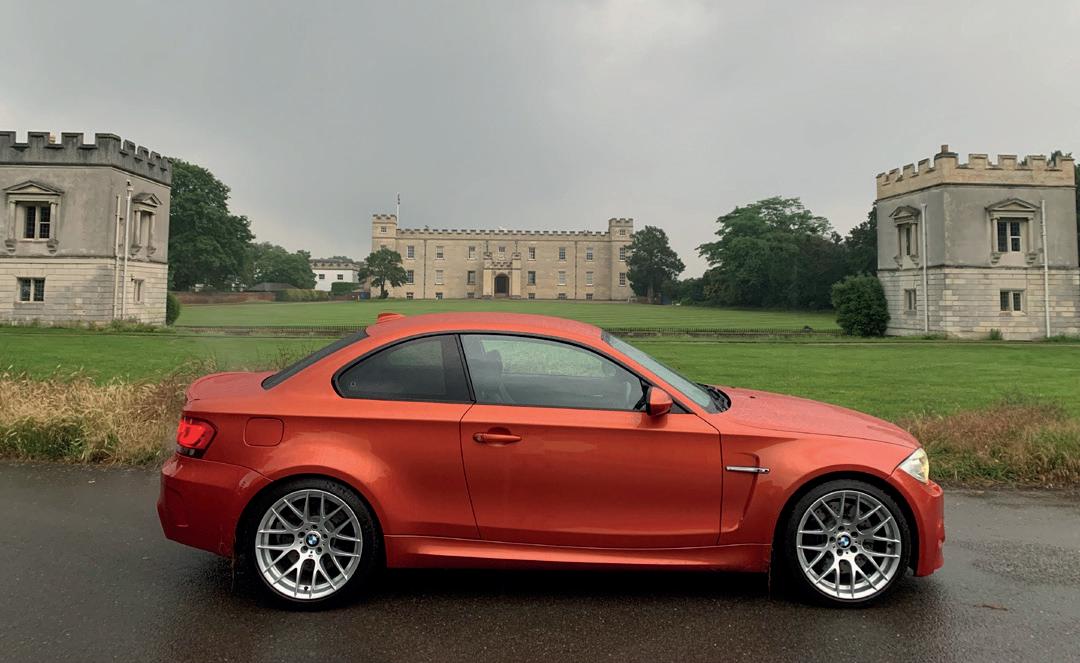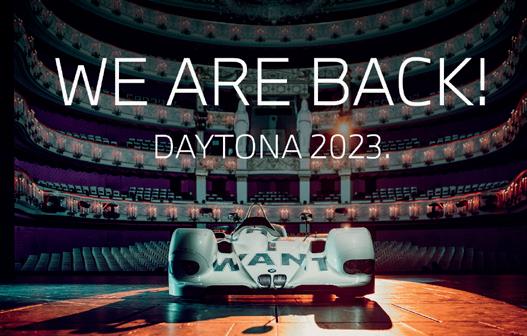
6 minute read
BMW News
bmwnews
BMW i Vision Circular
Advertisement
With the BMW i Vision Circular, the BMW Group is looking ahead with a compact BMW for the year 2040 that is focused squarely on sustainability and luxury. The four-seater has a fully electric powertrain and offers a generous amount of interior space within its four-metre-or-so-long footprint, because the packaging is so clever.
The BMW Group’s overriding aim, as it strives to achieve climate neutrality, is to reduce CO2 emissions throughout a vehicle’s entire life cycle. Besides electrifying the product portfolio and switching to renewable energy for manufacturing, the company is focusing particularly on circular economy principles and the use of secondary materials. These materials, such as secondary aluminium and secondary steel, can be obtained by recycling waste material and then reused. The process for supplying secondary materials is far less harmful to the environment and carbon intensive compared to the extraction and manufacture of primary material. This can bring about a major improvement in a vehicle’s carbon footprint, especially on the supply chain side. At present, vehicles from the BMW Group are manufactured using nearly 30% recycled and reused material, on average. The “secondary first” approach is intended to gradually increase this figure to 50%. “The BMW i Vision Circular illustrates our all-encompassing, meticulous way of thinking when it comes to sustainable mobility. It symbolises our ambition to be a pioneering force in the development of a circular economy,” explains Oliver Zipse, Chairman of the Board of Management of BMW AG. “We lead the way for resource efficiency in production and we are seeking to extend this status to all stages of the vehicle life cycle. This is a question of economic sustainability too, as the current trend in commodity prices clearly shows the financial consequences in store for any industry that is reliant on finite resources.”
This car is so clever, the press release was one of the longest we’ve ever received, explaining at great length every innovative detail of the car. We think it’s worth taking a look at this YouTube video which demonstrates all the features the i Vision Circular possesses: https://youtu. be/Zd7s5A9Xdok





The new 4 Series Convertible by Schnitzer
BMW specialists AC Schnitzer has released a host of goodies for the G23 4 Series Convertible, including performance upgrades, AC1 and AC4 20-inch wheels, sports rear silencers, aerodynamic components, sports suspension and lots of interior styling parts. The performance upgrades cater for all convertible models, too. AC Schnitzer can increase the power output of the 420i to 224hp, the 430i to 300hp and the real monster is the 440i which can be tweaked to 420hp. The best bit is that AC Schnitzer provides a two-year warranty on the tuned engine and five-year warranty on the actual unit and software. For more details, visit ac-schnitzer.co.uk
Revolution, not Evolution
BMW Group to reduce carbon footprint significantly by 2030 using innovative materials
The BMW Group is stepping up its fight against climate change with a unique sustainability strategy and clearly defined CO2 targets, as announced by Oliver Zipse, Chairman of the Board of Management of BMW AG at a media event in Munich. The main focus of the company’s pioneering strategy is, on the one hand, to drastically reduce CO2 per vehicle by 2030. While on the other, with the introduction of the Neue Klasse, the BMW Group will be massively promoting the use of secondary materials and the forward-looking principles of the circular economy. The BMW Group is committing to a more sustainable pathway, with the goal of limiting global warming to 1.5 degrees Centigrade.
Fulfilment of all climate goals is closely tied to research and development of sustainable materials. The BMW Group believes only a holistic approach to the use of proven and new materials can permanently reduce CO2 emissions. For this reason, the BMW Group is focusing its research and development efforts on environmentallycompatible raw materials. At the same time, it is accelerating the creation of a secondary materials market and working with select start-ups and experienced material suppliers to develop pioneering materials.
The BMW Group has used renewable raw materials in its vehicles for a number of years. For example, in door trim panels, a natural fibre mat is paired with a plastic matrix to make the panel. Renewable raw materials like natural fibres are not only 30% lighter than plastic alternatives, they also come into the CO2 calculation with a negative value, since they absorb CO2 and release oxygen during the growth phase. In recognition of this potential, the BMW Group and its partners have systematically further developed the use of hemp, kenaf and flax, creating natural fibre lattice structures from the materials.
Wood can be used as a renewable raw material in many different areas, too. The application on wood includes a pioneering wood foam, made up of finely ground wood particles. The foam’s resistance comes from its own binding forces, which make it possible to dispense with synthetic adhesives. The foam therefore consists of 100% renewable raw materials and could replace acoustic foams in the future.

The first Mexican 2 Series Coupé rolls off the production line
The BMW Group Plant in San Luis Potosi has started the production of the new BMW 2 Series Coupé. The new highpowered sports coupé is the first BMW model to be built in Mexico.
The San Luis Potosi plant is the newest within the company’s global production network. From its design and construction, the plant was designed to easily adapt to produce different models. In just two years since the plant first started to be built, it has enhanced operations to include the manufacture of plug-in hybrid electric vehicles and has expanded its distribution possibilities to cover the globe. With an additional investment of $125 million dollars, the facilities were improved to incorporate a second vehicle into its production line.

The BMW i Vision AMBY

With the BMW i Vision AMBY, the first high-speed pedelec for urbanists, the BMW Group is presenting a visionary two-wheeled solution for the urban mobility of tomorrow. And for those who are wondering what the name means, AMBY is a neologism for adaptive mobility.
From the outside, the BMW i Vision AMBY looks similar to an e-bike, but it offers significantly more possibilities. The AMBY is fitted with an electric drive system with three speed ratings for different types of roads. The drive system enables speeds of up to 16mph on cycle tracks, up to 28mph on city centre roads and up to 37mph on multi-lane roads and outside urban areas. Insurance plates and a corresponding licence will be required for the higher speeds.
The BMW Group views the BMW i Vision AMBY as an attractive means of transport for the future in larger cities. As a second vehicle for a family or an entry point into the world of pedal-driven, electrified two-wheeled vehicles, the BMW i Vision AMBY offers an extremely varied range of applications.










